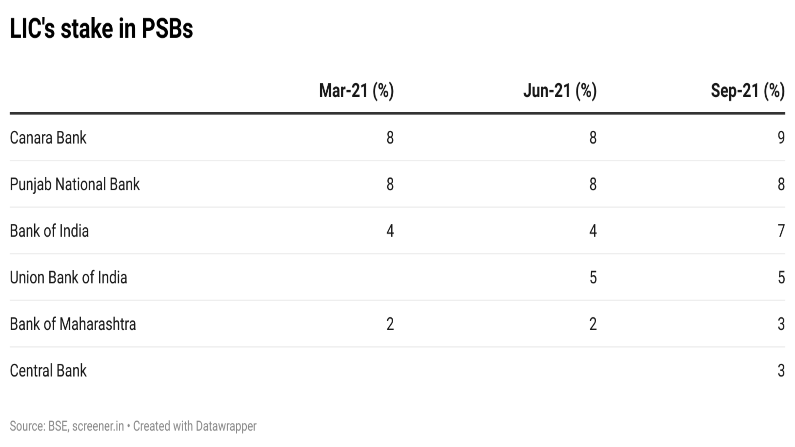Here is why PSBs are becoming the darling of Dalal Street
PSBs have a dominant position in corporate lending and a strong foothold in semi-urban and rural areas which offers them an edge.

Public sector banks once dumped by many are slowly yet steadily becoming the hot favourites of investors on Dalal Street. Sample this the Nifty PSU Bank index has galloped 125% over last year from 1,302 levels on November 2, 2020, to 2,927 levels as of today’s closing. During the same period, Nifty 50 rallied 53.29% and the Nifty Bank index surged 60.44%. Let’s understand what driving this rally in public sector banks.
Mimicking macros
Morgan Stanley believes India is at an inflexion point that marks the start of a new virtuous growth cycle and has further raised its GDP growth estimates for FY22 & FY23. It is of the opinion that this cycle is very similar to the one in the early 2000s. Where banks had gone through a deep NPL (non-performing loans) cycle and a fall in bond yields helped recapitalize balance sheets.
Thereafter, as the macrocycle turned, banks did very well on earnings and re-rated sharply. While private banks did well through the cycle, state-owned banks outperformed significantly in the initial years.
Shareholding
The shareholding pattern of PSBs (Public Sector Banks) is witnessing a change as India’s largest institution LIC (Life Insurance Corporation) has been bottom-fishing in this space.

Marquee investor
Besides LIC, marquee investor Rakesh Jhunjhunwala is also bullish on the sector. In media interaction he said “I am extremely, extremely bullish on public sector undertaking (PSU) banks and other industry also. I will go scrip-wise and somewhere the valuations are ridiculous even today; we have companies valuing at 2-3 times EBITDA– that cannot be the valuations.”
The big bull has bought a 1.6% stake in Canara Bank between July to September quarter.
Performance of PSBs
Jhunjhunwala anticipates a big change in the performance of PSBs. The performance of PSBs that have declared their Q2FY22 numbers so far hasn’t been uniform. There are some hits and some misses as well.
For instance, a healthy deposit growth, stable credit quality, adequate provisioning, planned fund raising and improving macroeconomic conditions worked well for Canara Bank.
Tailwinds
Well, talks of privatization of PSBs have been going on for quite some time now but that is rarely reflected in the valuations of PSBs. However, the perception seems to be changing after the privatization of the national carrier, Air India.
“With Rs 30,600 crore of government guarantees, National Asset Reconstruction Company (NARCL) is expected to help free-up the resources of PSBs blocked in NPAs, which is another positive,” said Vinit Bolinjkar, Head of Research at Ventura Securities.
Outlook
After being value destroyers for almost a decade there is some light at the end of the tunnel for PSBs on the back improving asset quality and stepping up the digital transformation.
PSBs have a dominant position in corporate lending and a strong foothold in semi-urban and rural areas which offers them an edge in an under-penetrated credit market like India. Most importantly, PSBs have been raising capital and upgrading their technological capabilities, Bolinjkar added.
Download Money9 App for the latest updates on Personal Finance.
Related
- देश का विदेशी मुद्रा भंडार 4.47 अरब डॉलर घटकर 688.1 अरब डॉलर पर
- मौद्रिक नीति पर निर्णय से पहले सेंसेक्स 308 अंक टूटा, निफ्टी भी नुकसान में
- जी एंटरटेनमेंट के शेयरधारकों ने प्रवर्तक संस्थाओं से 2,237.44 करोड़ जुटाने के प्रस्ताव को किया खारिज
- 15 जुलाई तक मक्का, धान की फसलों का बीमा कराएं किसान: हमीरपुर जिला अधिकारी
- सेंसेक्स की शीर्ष 10 कंपनियों में से नौ का बाजार पूंजीकरण 2.34 लाख करोड़ रुपये बढ़ा
- नेस्ले इंडिया के निदेशक मंडल के 1:1 बोनस शेयर जारी करने को दी मंजूरी दी

